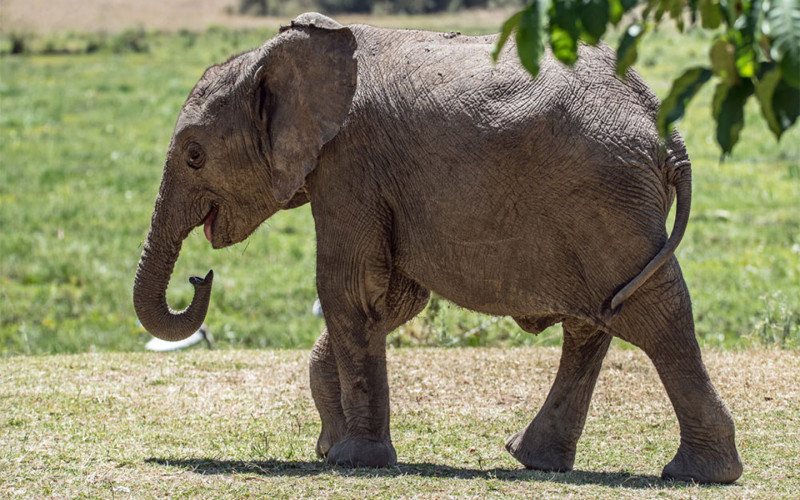
Bees sting and kill ,many people the world over but when handled properly bees provide a huge source of income, with very little input from the keeper.
In Kenya, Meru County farmers living close to forest areas have adopted bee-keeping as a way of keeping stray elephants at bay in addition to the benefits accrued from the lucrative apiculture activity.
According to the experts, adopting this method is a way of preventing the elephants from destroying their farms and at the same time reaping from the business of bee-keeping.
"We came to learn that elephants do not get close to beehives and that is how we started encouraging our people to keep beehives in the areas where they border with the forest so they can prevent them from destroying their farms,” Tina Mwirigi, a bee-keeping expert told KNA.
Thousands of farmers in rural areas nearing animal parks and conservancies have always been reeling from massive crop losses due to jumbo menace.
For instance in Kwale County, farmers have recurrently appealed to the Kenya Wildlife Services to control the roaming stray elephants believed to be from the Shimba Hills National Park causing wrecked havoc on their farms.
The experts warn if the situation is not controlled this could lead to food insecurity in the in most affected areas due to the destruction of crops.
The majority of elephant crop-raiding occurs during the hours of darkness. In TransMara, Kenya, all recorded crop raids occurred between 7 pm and 5 am, with a peak of activity at 8 pm.
This peak of crop-raiding activity in the evening may be explained first, by elephants using the cover of darkness to increase their chances of success.
Over 20 local farmers in Kwale County have so far reported losses due to the invasions of Jumbo's in their farms.
Second, an elephant’s feeding activity would naturally increase through the afternoon and evening, peaking around 9 pm.
Thus, the majority of crop-raiding occurs during the period that elephants would be naturally feeding.
Elephants invasion in peoples homesteads and farms is claimed to have caused injuries to the residents.
Despite massive damages, seeking compensation from KWS has remained a toll process of Justice for the farmers.
Locally, some lobby groups are calling on farmers to adopt Sunflower growing since the crop is favorite fodder for honeybees.
This is aimed at mitigating measures against persistent wildlife conflict.
Besides keeping the elephants at bay, bees also help them in the pollination of crops on their farms hence resulting in quality produce.
By Fridah Wangechi | 1 year ago
By Ezra Manyibe | 2 weeks ago
By Ezra Manyibe | 2 weeks ago